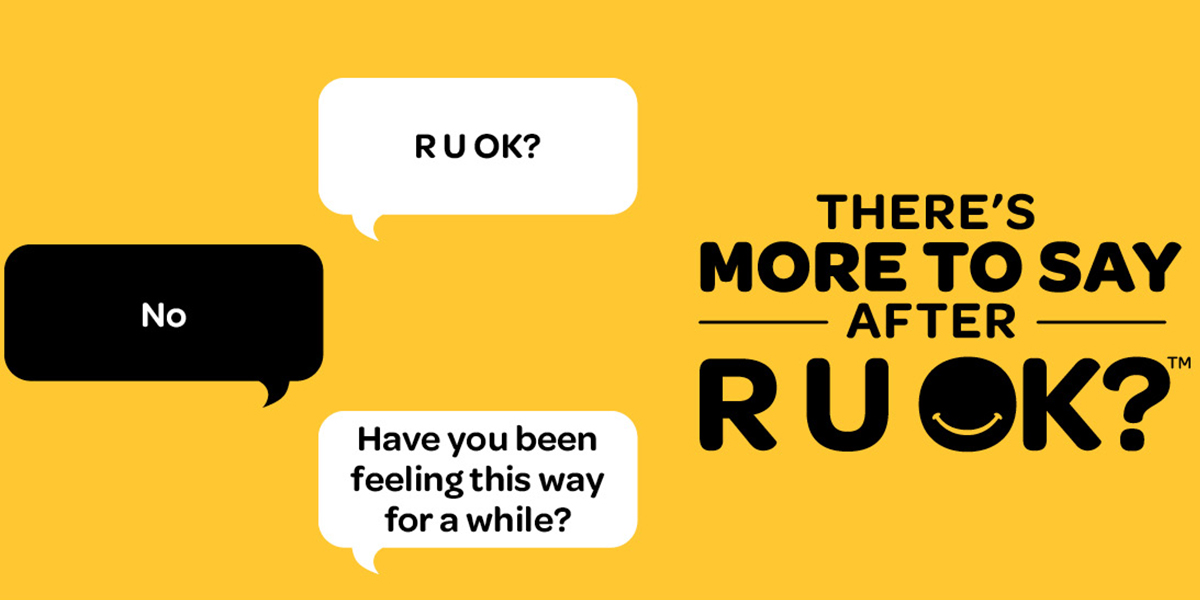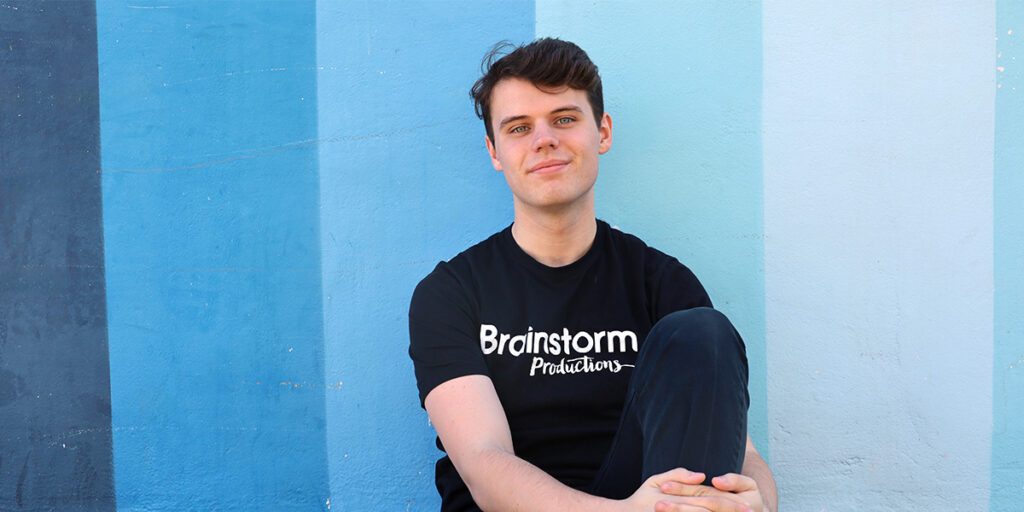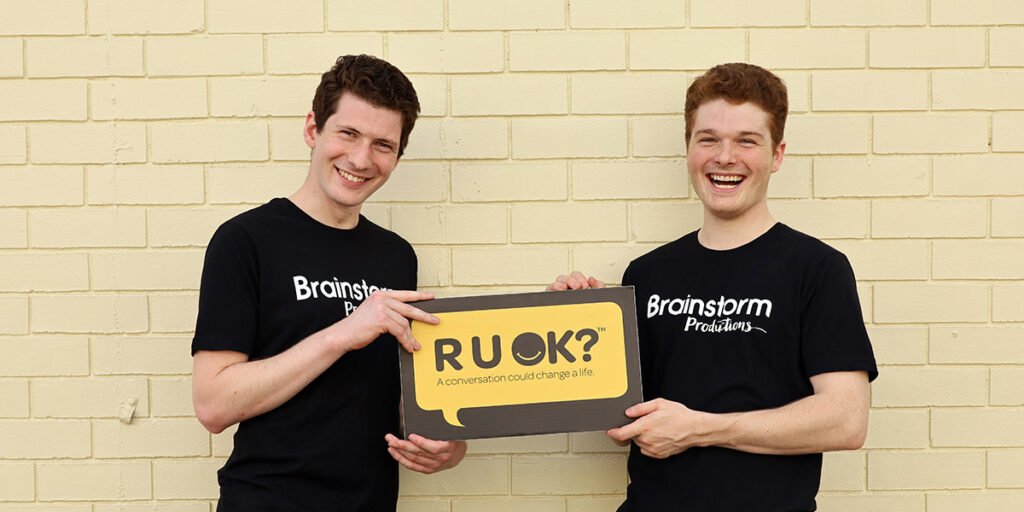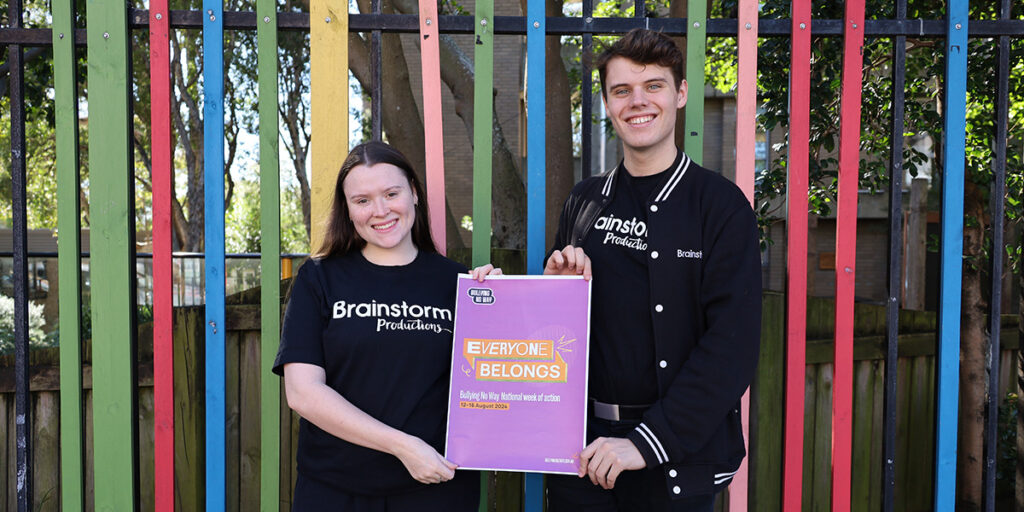Thursday 10th September is R U OK?Day, a national day of action that reminds all Australians to check in with the people around them and support anyone who is struggling with life.
2020 has been a difficult year for all of us. The devastating bushfires, the COVID-19 pandemic and other challenges have caused distress, uncertainty, grief and feelings of hopelessness in our communities and a rise in mental health concerns. It has been so important to stay connected this year, even when circumstances have made it difficult to do so.
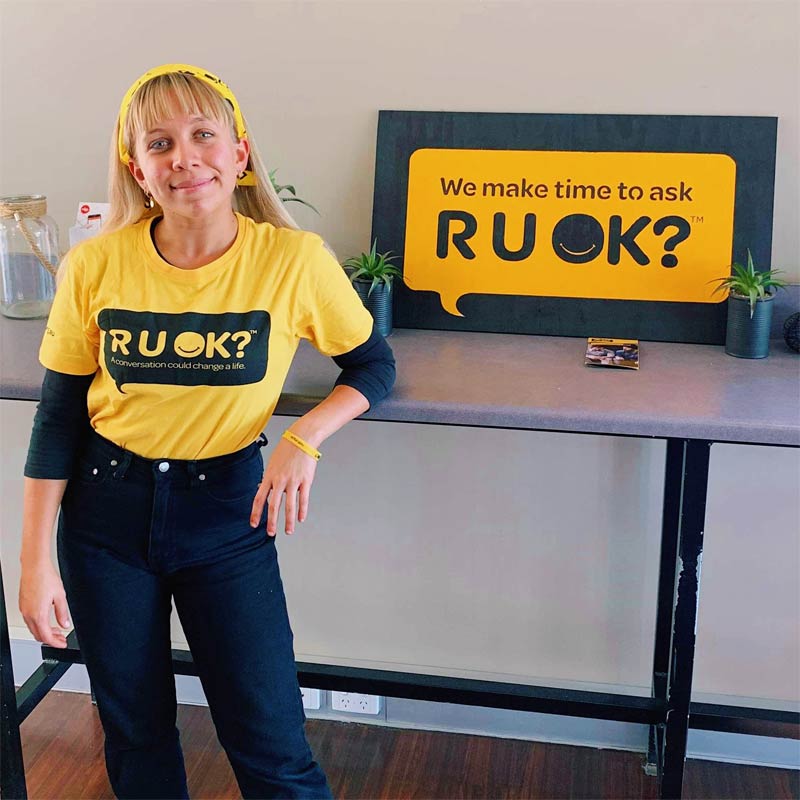
In 2019 we learnt to trust the signs, trust our gut and ask the question “Are you OK?” This year the key message is “There’s more to say after R U OK?”, empowering people with the skills and confidence to continue a conversation that could change a life. Thanks to the work of R U OK?, many more Australians now understand the importance of asking “Are you OK?”. However, many of us still feel unprepared for the conversation and worry that we won’t say the right thing if the answer is “no, I’m not OK”.
It’s important to remember that you don’t need to be an expert to support someone who is struggling with life. You won’t have all the answers and that’s OK. Listening is one of the most important things you can do.
Getting ready to ask
Before you ask the question, it’s important that you’re in a good headspace and have the time and willingness to listen. Talking about struggles can bring up some difficult emotions, such as sadness or embarrassment, so we need to be prepared to sit with those emotions if they arise. Try to choose somewhere that is relatively private and informal, where you won’t be interrupted. If they can’t talk, suggest another time to have the conversation.
Having the conversation
1. Ask the question
There are lots of different ways to ask “Are you OK?” It’s important to use language that feels comfortable, authentic and appropriate for the person and the situation. Try using questions that are open, non-judgmental and show a genuine willingness to listen. Some ideas include:
- “You haven’t seemed yourself lately, would you like to talk about it?”
- “I know you’ve been dealing with some big life changes. How have you been coping?”
- “I’ve noticed a few changes in you lately. How are things going?” You may wish to give examples of some of the changes you’ve noticed.
- “I’ve been thinking about you lately with everything that’s going on – how have you been?”
- “You’ve had a lot going on. How are you doing?”
2. Listen with an open mind
If they indicate that they’re not OK or they want to talk, it’s important to listen with genuine concern and take what they say seriously. Don’t interrupt or rush the conversation. If they need time to think, try and sit patiently with the silence. Encourage them and let them know you’re listening. You could say things like:
- “How long have you been feeling this way?”
- “What was that like?”
- “That must have been really tough”
- “Take your time, I’m here for you”
- “Keep going, I’m listening”
- “Thanks for sharing this with me, it mustn’t be easy”

3. Encourage action
Once you’ve taken the time to listen, ask them questions that will help them to take action. Ask them how you can help or what they’ve done in the past that has helped. Encourage them to access other supports, such as talking to family, close friends, a doctor or other qualified health professionals. You could say:
- “What can I do right now to support you?”
- “Is there something you’ve tried in the past that’s helped when you’ve felt like this?”
- “Have you spoke to anyone else about this? Talking to a doctor or another health professional can really help.”
Encourage them to contact a crisis line or online support service if needed, such as Lifeline (13 11 14), Kids Helpline (1800 55 1800) or Beyond Blue (1300 224 636). For children and young people, it’s important that they talk to a trusted adult straight away if a friend or family member has told them they’re struggling. You can find more information about professional support services at ruok.org.au/findhelp.
4. Check in
It’s important to check in a few days later to see how the person is going. Check in with them regularly and remind them that you’re always here to listen. Stay hopeful and keep reinforcing the benefits of seeking professional help.
What if they don’t want to talk?
They might say they don’t want to talk about it. Or they might say they’re fine but your gut tells you they’re not. There may be lots of reasons why someone isn’t ready to talk – respect their decision and try not to take it personally. Ask them if there’s someone else they could talk to, or if there’s another time or place they would prefer to talk to you.
Remind them that you’re here to listen whenever they feel like talking and ask if you can check in with them again soon. If you’re really worried about them, you could try reaching out to someone else who is close to them and encourage that person to check in.
R U OK? has more tips and resources that guide you on what to say if they’re not OK. The video below, produced by R U OK? and Brainstorm Productions, also provides tips for high school students, to help them have a conversation with someone they’re worried about at school.
Create an 'R U OK?' culture in your school
The R U OK? message is a great way to support mental health education programs in schools and enhance social and emotional learning (SEL). Teachers can nurture an R U OK? culture by explaining to students that they’re never too young to look out for one another and ask “Are you OK?” It’s also important for students to understand that they’re not expected to fix someone’s problems or know the best way to help them. Just listening to what the person is saying and telling a teacher, school counsellor or other trusted adult can be really helpful.
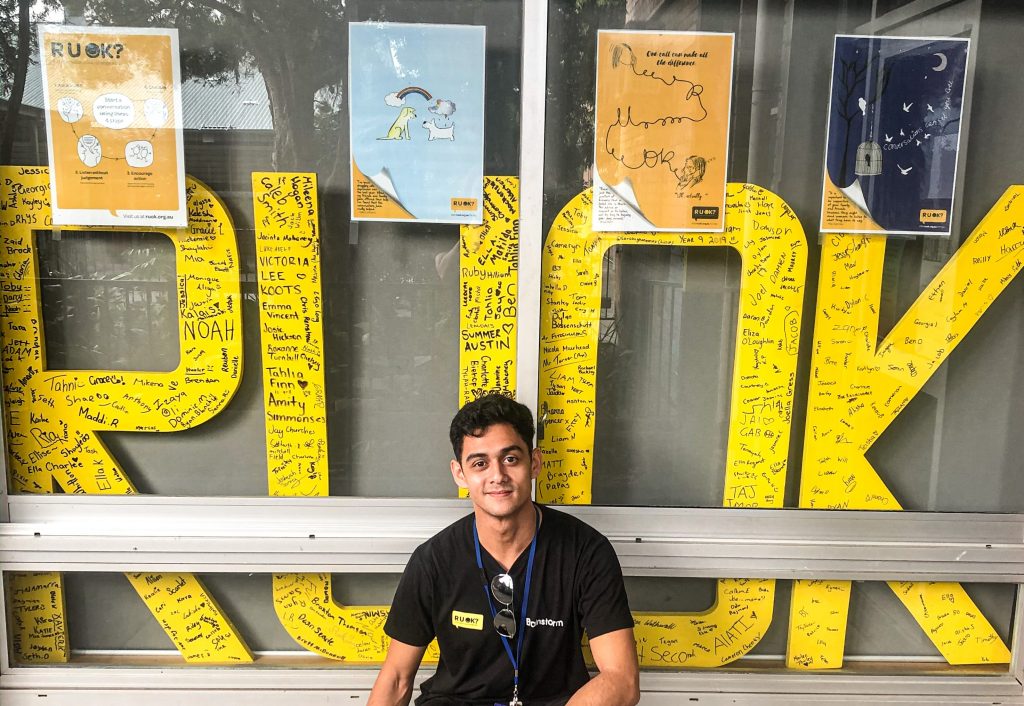
The R U OK? Resources for Educators help teachers start these important conversations in the classroom, with free classroom toolkits, videos and a new series of resources to support students who are learning from home.
Brainstorm Productions is proud to be an R U OK? School Partner, sharing the R U OK? message with students on R U OK?Day and throughout the year. We help schools create an R U OK? culture by presenting our live student wellbeing programs and facilitating discussions about mental health, resilience and help-seeking with primary and high school students. Our curriculum-aligned classroom resources include activities to help students trust the signs, ask “Are you OK?” and have regular, meaningful conversations with those around them. Our student wellbeing programs have a strong focus on help-seeking, encouraging students to talk to trusted adults and access professional supports if they’re worried about a friend, schoolmate, family member or themselves.
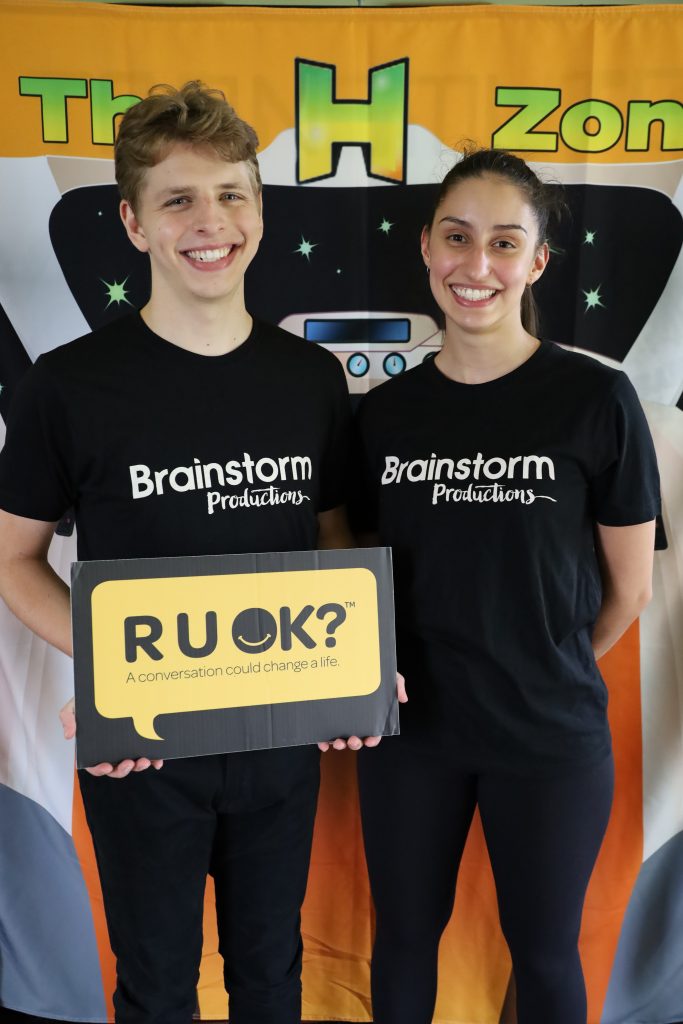
Schools can get involved with R U OK?Day by hosting a special activity, such as a morning tea, sausage sizzle, fundraiser, special assembly, sporting event or one of our live performances. Schools can also create a ‘Conversation Corner’, a physical or virtual space where students and staff can connect and have supportive, meaningful conversations about life’s ups and downs. Schools that are learning from home can also get involved in R U OK?Day by hosting virtual events, discussions, special lessons and gatherings via social media or other online platforms.
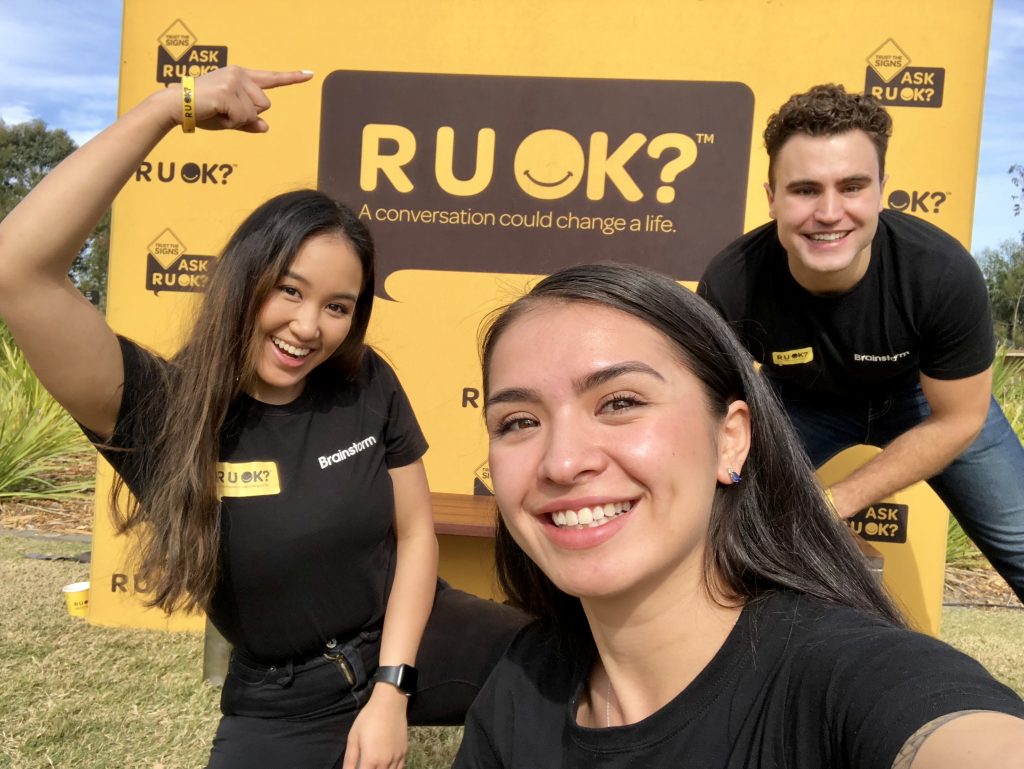
To join R U OK?Day and learn what to say after R U OK? go to www.ruok.org.au.

